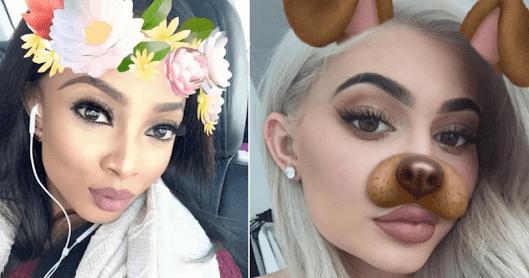Plastic surgeons are reporting a rise in patient’s requests to look more like their filtered Snapchat or Instagram photos.
An article published in the JAMA Facial Plastic Surgery journal dubbed the phenomenon as ‘Snapchat dysmorphia’.
Previously, patients would bring images of celebrities to their consultations to emulate their attractive features.
But now, patients are seeking out cosmetic surgery to look like filtered versions of themselves, with fuller lips, bigger eyes, or a thinner nose
Body dysmorphic disorder (BDD) is an excessive preoccupation with a perceived flaw in appearance, classified on the obsessive-compulsive spectrum.
The disorder is more than an insecurity or a lack of confidence.
Those with BDD often go to great lengths to hide their imperfections, engage in repetitive behaviours like skin picking or grooming and may visit dermatologists or plastic surgeons frequently, hoping to change their appearance.
A recent study in the International Journal of Eating Disorders analysed the effect of edited selfies on body dissatisfaction among adolescent girls.
The study found that those who manipulated their photos more reported a higher level of concern with their bodies and an overestimation of body shape and weight.
Also, those with a dysmorphic body image may seek out social media as a means of validating their attractiveness.
Copyright 2025 TheCable. All rights reserved. This material, and other digital content on this website, may not be reproduced, published, broadcast, rewritten or redistributed in whole or in part without prior express written permission from TheCable.
Follow us on twitter @Thecablestyle

